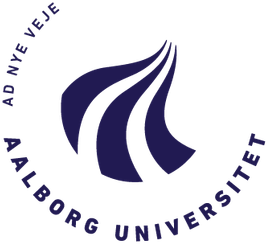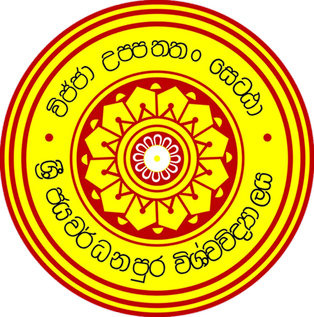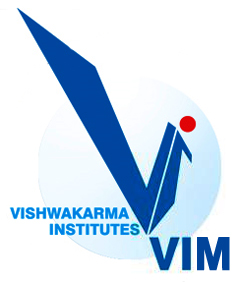Related Research Articles

The University of Copenhagen is a prestigious public research university in Copenhagen, Denmark. Founded in 1479, the University of Copenhagen is the second-oldest university in Scandinavia after Uppsala University, and ranks as one of the top universities in the Nordic countries, Europe and the world.

Aalborg University (AAU) is a Danish public university with campuses in Aalborg, Esbjerg, and Copenhagen founded in 1974. The university awards bachelor's degrees, master's degrees, and PhD degrees in a wide variety of subjects within humanities, social sciences, information technology, design, engineering, exact sciences, and medicine.

Aarhus University is a public research university with its main campus located in Aarhus, Denmark. It is the second largest and second oldest university in Denmark. The university is part of the Coimbra Group, the Guild, and Utrecht Network of European universities and is a member of the European University Association.
Maastricht University is a public research university in Maastricht, Netherlands. Founded in 1976, it is the second youngest of the thirteen Dutch universities.

Mikael Colville-Andersen is a Canadian-Danish urban designer and urban mobility expert. He was the CEO of Copenhagenize Design Company, which he founded in 2009 in Copenhagen, and he works with cities and governments around the world in coaching them towards becoming more bicycle friendly. He is the host of the urbanism documentary television series The Life-Sized City, which premiered in 2017 on TVOntario and in 2018 on various other international channels including Finland's national broadcaster YLE and Italian broadcaster La Effe. Season 1 of The Life-Sized City was nominated for five Canadian Screen Awards in 2018.
City quality of life indices are lists of cities that are ranked according to a defined measure of living conditions. In addition to considering the provision of clean water, clean air, adequate food and shelter, many indexes also measure more subjective elements including a city's capacity to generate a sense of community and offer hospitable settings for all, especially young people, to develop social skills, a sense of autonomy and identity.

Punjabi University is a collegiate state public university located in Patiala, Punjab, India. It was established on 30 April 1962 and is only the second university in the world to be named after a language, after Hebrew University of Israel. Originally it was conceived as a unitary multi-faculty teaching and research university, primarily meant for the development and enrichment of the Punjabi language and culture, but alive to the social and education requirements of the state.

Cycling advocacy consists of activities that call for, promote or enable increased adoption and support for cycling and improved safety and convenience for cyclists, usually within urbanized areas or semi-urban regions. Issues of concern typically include policy, administrative and legal changes ; advocating and establishing better cycling infrastructure ; public education regarding the health, transportational and environmental benefits of cycling for both individuals and communities, cycling and motoring skills; and increasing public and political support for bicycling.

The University of Sri Jayewardenepura is a public university in Sri Lanka. It is in Gangodawila, Nugegoda, near Sri Jayewardenepura Kotte, the capital city. It was formed in 1958 out of the Vidyodaya Pirivena, a Buddhist educational centre which was founded in 1873 by Ven. Hikkaduwe Sri Sumangala Thera.

Monocle is a global affairs and lifestyle magazine, 24-hour radio station, website, retailer and media brand, produced by Winkreative Ltd. It was founded by Tyler Brûlé, a Canadian entrepreneur, Financial Times columnist, and founder of Wallpaper* magazine.

The International Water Association (IWA) is a nonprofit organization and knowledge hub for the water sector, connecting water professionals and companies to find solutions to the world's water challenges. The IWA is headquartered in London, UK, with a global secretariat based in Nanjing, China, and a regional office in Chennai, India.

University of Kurdistan is the largest university in Iranian Kurdistan Province, located in south of Sanandaj. The University of Kurdistan was ranked as the eighth top university in Iran in academic year 2007-2008 and was ranked as the first top developing university in Iran in academic year 2006–2007.
EuroScience was founded in 1997 for the support and promotion of science and technology in Europe. EuroScience is a membership-based non-profit association to foster open debate about science and create networks in research and innovation. Its members include anyone interested in European research, whether professional scientists, policy-makers, industries or members of the public.

Cycling in Copenhagen is – as with most cycling in Denmark – an important mode of transportation and a dominating feature of the cityscape, often noticed by visitors. The city offers a variety of favourable cycling conditions — dense urban proximities, short distances and flat terrain — along with an extensive and well-designed system of cycle tracks. This has earned it a reputation as one of the most bicycle-friendly cities in the world. Every day 1.2 million kilometres are cycled in Copenhagen, with 62% of all citizens commuting to work, school, or university by bicycle; in fact, almost as many people commute by bicycle in greater Copenhagen as do those cycle to work in the entire United States. Cycling is generally perceived as a healthier, more environmentally friendly, cheaper, and often quicker way to get around town than by using an automobile.
The MIT Senseable City Laboratory is a digital laboratory within MIT's City Design and Development group, within the Department of Urban Studies and Planning, which works in collaboration with the MIT Media Lab. The lab aims to investigate and anticipate how digital technologies are changing the way people live and their implications at the urban scale.

The Faculty of Law of the University of Oslo is Norway's oldest law faculty, established in 1811 as one of the four original faculties of The Royal Frederick University. Alongside the law faculties in Copenhagen, Lund and Uppsala, it is one of Scandinavia's leading institutions of legal education and research. The faculty is the highest-ranked institution of legal education in Norway and is responsible for the professional law degree, one of the most competitive programmes at any Norwegian university.

Vishwakarma Institute of Management(Hindi: विश्वकर्मा प्रबंधन संस्थान), or V.I.M as it is commonly abbreviated, was founded in 1991. It is a renowned institute which is affiliated to University of Pune. It is recognized and approved by All India Council for Technical Education(AICTE), New Delhi. Since 2001, the institute was affiliated to the University of Pune. It is also recognized by Government of Maharashtra And CRISIL has graded VIM's MBA programme with B*** at National Level and MH A at State Level. The institute is also the recipient of the 19th Dewang Mehta B School Award for the Best B School with Academic Inputs in Marketing. In 2013 the institute has been honored with the "Second Best Professional Institute in Urban Area" by University of Pune.

UCL Urban Laboratory is a cross-disciplinary centre for the study of cities and urbanism, based at University College London. It carries out research, education and outreach activities both in London and internationally. The Urban Laboratory was established in 2005. UCL Urban Lab is a department of the Bartlett Faculty of the Built Environment which also co-operates with the faculties of Engineering, Social and Historical Sciences; and Arts and Humanities. The current director and Head of Department is Dr Clare Melhuish, who took on the role from Dr Ben Campkin in 2018.

Kristu Jayanti College, founded in the year 1999, managed by "Bodhi Niketan Trust", formed by the members of St. Joseph Province of the Carmelites of Mary Immaculate (CMI). The college is affiliated to Bengaluru North University. The college is recognized by UGC under the category 2(f) & 12(B). The college was accorded autonomous status in 2013 by the University Grants Commission, Government of Karnataka & the Bengaluru North University. The National Assessment and Accreditation Council (NAAC) has accredited Kristu Jayanti College (Autonomous) with A++ grade.The college has been rated with a cumulative grade point average (CGPA) of 3.78 out of 4 in the third cycle of accreditation. it is the second institution in the country and the first in Karnataka to achieve the highest CGPA.
The Global Livability Ranking is a yearly assessment published by the Economist Intelligence Unit (EIU), ranking 172 global cities for their urban quality of life based on assessments of stability, healthcare, culture and environment, education and infrastructure. Austria's capital, Vienna, was ranked the most liveable city in 2022 among the 172 cities surveyed by The Economist Intelligence Unit, having previously won in 2018 and 2019. Auckland was ranked the most liveable city in 2021. Melbourne, Australia, had been ranked by the EIU as the world's most liveable city for seven years in a row, from 2011 to 2017.
References
- ↑ "About Urban Culture Lab". Urban Culture Lab. Retrieved 22 September 2014.
- ↑ "Science in the City, about Urban Culture Lab". Science In the City. Retrieved 29 September 2014.
- 1 2 "Steering Committee". Urban Culture Lab. Retrieved 22 September 2014.
- ↑ "b2match: Urban Culture Lab, Fac. of Humanities". b2match. Retrieved 29 September 2014.
- ↑ "List of public seminars, Urban Culture Lab (in Danish)". Urban Culture Lab. Retrieved 22 September 2014.
- ↑ "Tea Time Club: Interview with Henrik Reeh". Tea Time Club. 20 August 2014. Retrieved 22 September 2014.
- ↑ "Urbanisation, design & livability: video with Henrik Reeh and Jan Gehl". Alphafilm. 13 May 2014. Retrieved 22 September 2014.
- ↑ "ESOF 2014 in Copenhagen". ESOF. Retrieved 22 September 2014.
- 1 2 "A liveable city: myths and realities". ESOF. Retrieved 22 September 2014.
- ↑ "The urban square: aesthetics meets minds". ESOF. Retrieved 22 September 2014.
- ↑ "Most liveable city: Copenhagen". Monocle. Retrieved 22 September 2014.
- ↑ "About: Sense of Cycling". Sense of Cycling. Retrieved 22 September 2014.
- ↑ "Bicycling Urban Cultures: A Copenhagen Treasure Hunt". Science In The City. Retrieved 29 September 2014.
- ↑ "4 Cities - Official website". 4 Cities. Retrieved 22 September 2014.
- ↑ "4 Cities?". 4 Cities. Retrieved 22 September 2014.
- ↑ "4 Cities - Structure". 4 Cities. Retrieved 22 September 2014.
- ↑ "4 Cities - Universities". 4 Cities. Retrieved 22 September 2014.
- ↑ "Affiliated researchers". Urban Culture Lab. Retrieved 22 September 2014.
